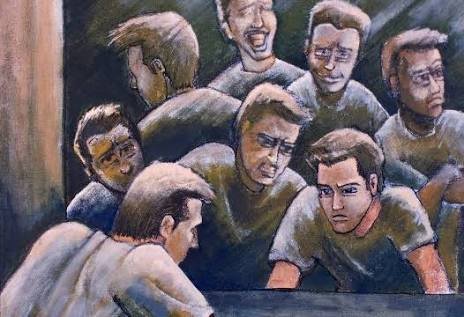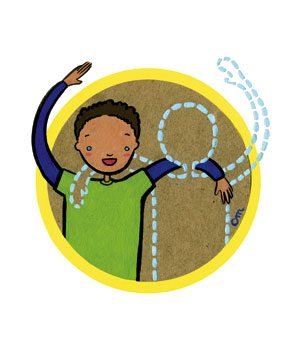Hello steemians and welcome to part two of the series that will only leave you questioning. Defining the mind might be an impossible task, but it's I think it is one worth pursuing.
So. Is consciousness divisible?

Well... maybe. We have all heard of people with multiple personality disorder, in serious cases separate personalities can take on complete lives of their own, and one won't remember what it was the others did. Is this a case of sharing a head with another mind, or just a case of one mind switching between identities?

Now we shall travel to the land of children and Buddhism. Everyone has heard of children creating imaginary friends, and most people just label it pretend, but did you know adults have done it to?
Ancient Buddhists referred to their imaginary friends as Tulpas, and they are far from pretend. Though in the beginning the practice involved much imagination, they got to the point where they could see their tulpa move, and hear it speak apparently of its own volition. The consciousness of tulpas could be so convincing that some believed they weren't really a creation of their mind, but that they were actually possessed by a god.
Crazy right?
Well... not so much. If you think about it, we all have imaginary friends don't we? Most dreams usually feature a character other then "you", and the interactions with them can be as complex as anything you or I can have. Like tulpas these dream characters seem to possess wills and even lives of their own.
Are they fleeting partitions of our consciousness, living their lives inside of our dreams? Do they know that their just a creation of our dreams? I dont know man, but maybe you should think twice before telling your dream people or a childs imaginary friend they dondon't exist.
I have not heard of the concept of Tulpas, but I find the concept of dissociative identity disorder (multiple personalities) to be very fascinating. I think that it is amazing how personalities within an individual with this disorder can have different handwriting styles, different dominant hands and even different allergies. I have heard of cases where one personality could be severely allergic to bees whereas other personalities within the same person are not. Its amazing how powerful our brains are. Unfortunately, the disorder tends to manifest itself within individuals who experience extremely traumatic upbringings. Such events force the mind to split so that the trauma can be compartmentalized among different individuals. This is why the norm for individuals with the disorder is to have upwards of 17 - 40 personalities. Repeated trauma keeps splitting the identities. Very sad but interesting as well.
In the case of imaginary friends, or Tulpas, maybe these are manifestations of our own subconscious. A persona of a portion of our own mind, like the people we experience within our dreams. Or maybe they are beings from another dimension - who knows.
Great post :)
Wow I havent heard about the allergy thing. That is really interesting.
There are some psychologists who suggest that we all have multiple personalities. Buisness you and causual you, happy you and sad you all fighting for control. But these come with little dissassociation keeping them all pretty similar.
It isnt untill these personalities have a reason to dissassociate inorder to escape the trauma that we get the disorder. Escaping the trauma means the personalities are forced to build new lives with an incomplete set of memories. Which is why the personalities tend to be so different from eachother.
That's very interesting.
I agree that we have different personas depending on the situation that we are in or who we are with. We certainly tend to act differently around our co-workers vs our family vs our friends. There is an interesting book about that sort of thing called the self illusion. Its basically a tour through psychological research on identity, memory and overall how our brains function. Basically its overall message is that the "self" is constantly shifting, adapting and changing overtime and to fit the current situation. There is no permanent "self" though we tend to believe that there is.